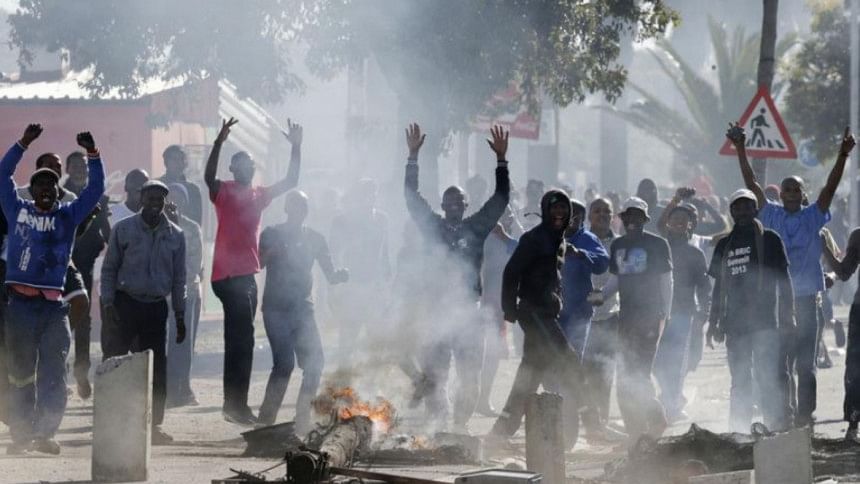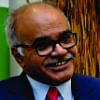Langa: What South Africa is this?

"Where am I?" is the first question I asked myself after getting out of the car. Bewildered, I looked around. With me, there were three black students from the University of the Western Cape, and the driver of the car was also a young black man. I found it hard to believe that ten minutes ago I was having a cup of coffee in the middle of Cape Town—which is more like a European rather than an African city. And only five minutes ago, I was travelling through residential areas, which were predominantly White, reminding me of the English countryside. Seeing my astonishment, one of the students said, "Didn't we tell you that we would bring you to Langa? This is Langa."
Two days ago I gave the Nadine Gordimer Memorial Lecture on "South Africa in the Twenty-First Century" at the University of Cape Town. After that event, many black students from the University of the Western Cape told me that before I leave Cape Town they would show me Langa. It is the oldest black slum in the Western Cape, the main centre of anti-apartheid movements in the region. In the late eighties, by opening fire on an anti-apartheid rally, the white cops killed more than 1300 people in only two hours.
So, here I was at Langa. Without any doubt, it was an inhuman scenery, full of extreme destitution, deprivation and exploitation. There were derelict shacks all around me, with roads and pathways in a deplorable state. It seemed worse than other slums in poor countries worldwide. But most fearful of all was the expression in the eyes of the people, where there was nothing but anger, spite, and deep despair. Apart from people in war-torn areas, I have not seen so much ferocity in human eyes.
"Don't look at anything, don't make any eye contact, and don't say anything. If something needs to be said, we'll say it. Under no circumstance take your mobile phone out of your pocket. Don't try to take any photos anywhere; we shall do that, and if you see any violent act, try to remain calm with a matter of fact expression. We are from Langa and we hope that nothing will happen. Please remember that if non-blacks enter into this slum, they often can't be traced. The colour of your skin is a 'no-no' here." Even before the students finished their instructions, our car suddenly sped off the place in a hurry.
Cold fear was creeping up my spine. My body and clothes were soaked in sweat and inside I was shaking all over. "The car will wait for us at a safe place", one of the students tried to reassure me. The three of them created a cordon around me and we started moving forward. I could see that at different corners there were small groups of residents, children aimlessly standing at various spots, and women working here and there. But I could sense that as soon as they saw our small group, silence fell and they stopped talking to take a measure of us.
The air was dense with the smell of liquor. "Do you know what is the staple of these people", one of the students whispered to me—"liquor at breakfast, liquor at lunch and the rawest spirits at dinner, absolutely neat". That is why no one is ever sober. As a result, anything can happen anytime, and even the police are afraid to enter Langa. See, the police van is waiting on the main road out there."
Believe me, I don't remember clearly everything I saw. Whatever I remember, I have no words to describe. The photos taken by the three students reflect closest the realities that I saw. After a few breathless minutes, we reached the main road where our car was waiting.
We then started heading for the airport. There was complete silence inside the car, as everyone kept quiet. But I knew that every one of us was quietly talking to himself. I don't know what the others were thinking, but the only question that was constantly surfacing in my mind was, "What South Africa is this?"
Selim Jahan is former Director, Human Development Report Office, UNDP, New York, USA.

 For all latest news, follow The Daily Star's Google News channel.
For all latest news, follow The Daily Star's Google News channel. 



Comments